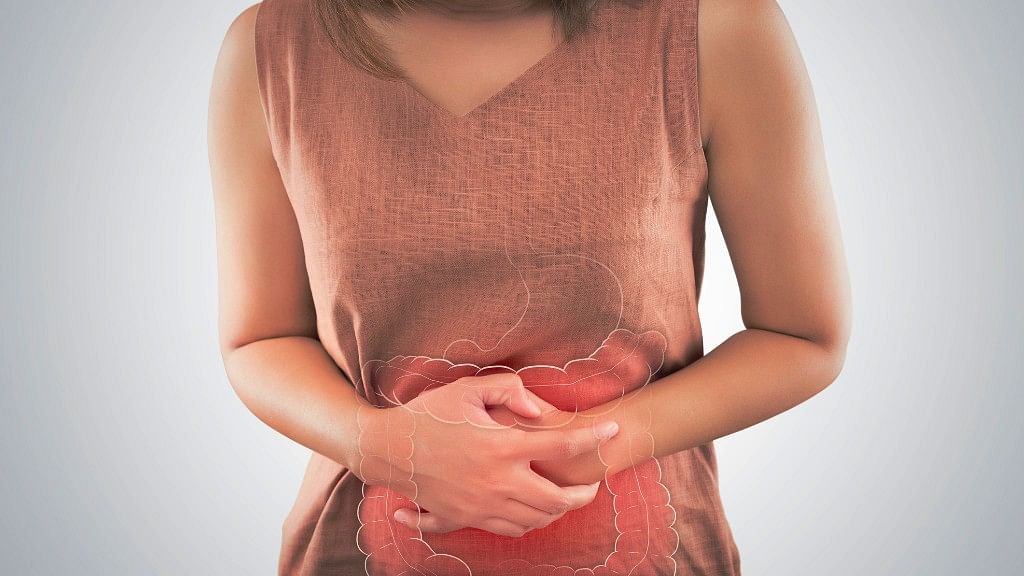7 Ways to Tame Your Irritable Bowel Syndrome
IBS: These simple lifestyle changes can help ease symptoms of irritable bowl syndrome.

Irritable Bowel Syndrome (IBS) is not that well understood and is often confused with other disorders. IBS is a functional gastric disorder. It leads to no identifiable physical changes and shows up only in lapses of function. The symptoms are abdominal pain and altered bowel habits; patients may have constipation or diarrhoea or both. It affects all age groups, the cause is unknown and the symptoms usually are a result of the disturbance in the way the gut, brain and the nervous system interact.
That said there are no diagnostic tests for IBS. A doctor will take your medical history, physical exam and tests to rule out other conditions to reach a diagnosis. There is no universal treatment as well, no one fit for all; treatment is individualised and focuses on managing symptoms.
Here are 7 things you can do to improve the condition:
Try Elimination Diet
Elimination diet is the first principal, wherein maintaining a food diary helps one identify and remove trigger foods from the diet. Everyone needs to work out their own triggers, but staying away from sugary foods, alcohol, caffeine and high fat meals helps, as these are common triggers.
Food and drinks with chocolate, alcohol, caffeine, fructose, or sorbitol are to be avoided. Often sensitivities to corn, soy, eggs and dairy occur in those with IBS. Quite often gluten sensitivity exists hand in hand with IBS, and in such cases, a gluten-free diet may reduce symptoms.
Avoid Gassy Foods
Second rule is to avoid eating gas producing foods like broccoli, onions, cabbage, lentils and beans.
Know Your Fibre
Increasing the right kind of fibre helps. But fibre intolerance varies in people so one has to be careful not to over do it. It’s also important to remember not all fibres are the same. Usually insoluble fibre, like the type that is found in corn or wheat bran does not help IBS patients, whereas insoluble fibre found in oats, barley, fruits and vegetables usually helps. Choose from these good options:
- Eggplant, okra, carrots, sweet potato, turnips are all foods with good soluble fibre content.
- Fruits like grapes, berries (strawberries, blueberries), oranges, banana and guava are all good.
- All nuts except cashews and pistachios are a good bet so are seeds like flaxseeds, chia and sunflower seeds. But again in small quantities, and not if one is sensitive to them.
Remember, it is important to increase fibre intake slowly as increasing too much too soon may worsen the symptoms. Avoid the skin of the fruits and vegetables. Also avoid fruit juices as they may aggravate diarrhoea and bloating.
Too Hot or Too Cold Don't Go Together
Simple steps help big. Don’t eat foods at opposite temperatures, such as ice-cold water and steaming hot soup, in the same meal. Also avoid eating while you work or drive, eating too quickly, and chewing gum.
Do not skip meals and try to eat at the same time daily.
Potion size is of utmost importance. Sometimes smaller amounts of trigger foods may not elicit symptoms.
Exercise. Always!
Not enough exercise could cause trouble too. Get at least 30 minutes of exercise every day. It can help you prevent constipation and ease stress.
Drink Enough Fluids
Finally, drinking enough fluids each day helps improve IBS symptoms, and soothes the stomach. Chamomile tea’s anti-inflammatory properties help relieve muscle spasms associated with intestinal disorders, and relax the stomach muscles.
De-Stress
There’s a connection between IBS and stress. Stress shows up at life’s twists and turns - and when that happens your pulse quickens, your blood flow increases and your pain threshold drops. For most people, stress also affects their gut.
In fact, very often stress is a significant culprit behind IBS woes. Enough research points to this connection. When one suffers from IBS, lowering stress levels always provides relief. Psychological counselling, cognitive behavioural therapy and hypnotherapy help, so do lifestyle changes that can help tone down stress.
(Kavita Devgan is a weight management consultant, nutritionist, health columnist and author of ‘Don’t Diet! 50 Habits of Thin People’.)
(Have you subscribed to FIT’s newsletter yet? Click here and get health updates directly in your inbox.)
(For more stories on diets and nutrition, follow FIT)
(At The Quint, we are answerable only to our audience. Play an active role in shaping our journalism by becoming a member. Because the truth is worth it.)